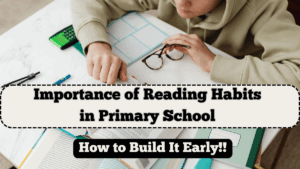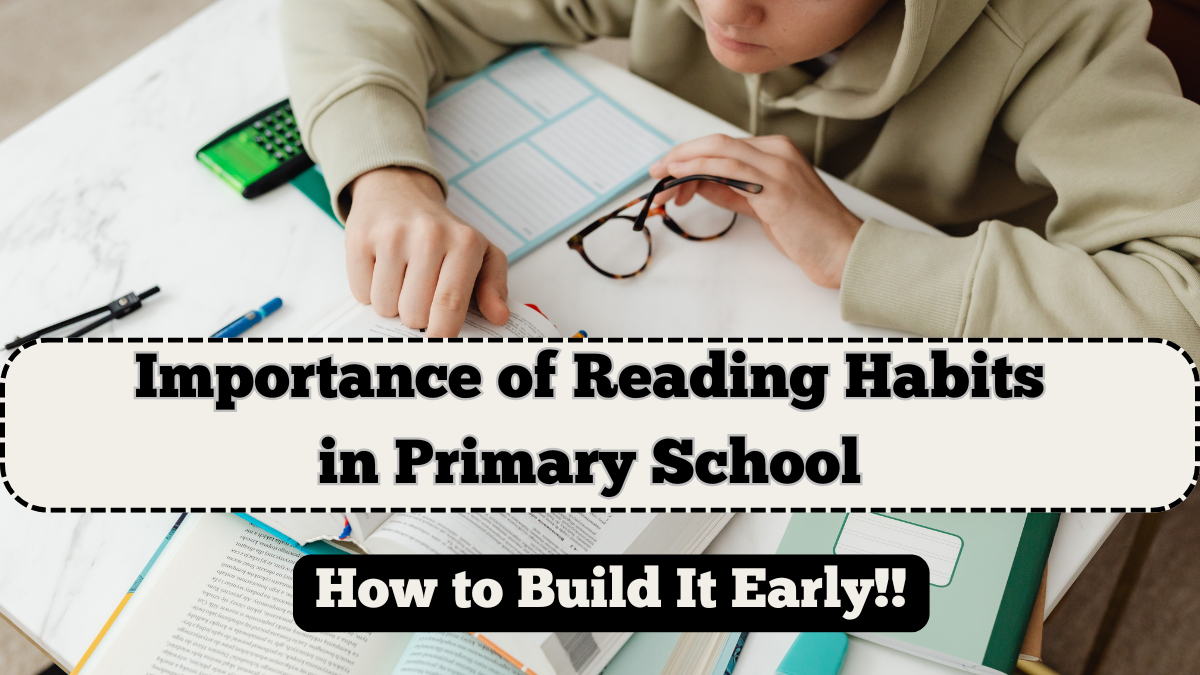Reading is more than just a school requirement—it’s a life skill. Developing strong reading habits for students during the primary school years lays the foundation for academic success, emotional growth, and confident communication. When introduced early and encouraged consistently, reading transforms children into curious learners and independent thinkers.
Unfortunately, in the age of screens and fast-paced content, reading is often sidelined. However, instilling a love for books from a young age can significantly improve student learning, vocabulary, imagination, and even social behavior.

Why Early Literacy Matters
The early years of a child’s life are critical for brain development. Introducing books during this stage boosts both literacy and cognitive function. Here’s how strong reading habits for students can help:
-
Enhances concentration and comprehension
-
Improves vocabulary and language fluency
-
Encourages empathy through storytelling
-
Builds imagination and creativity
-
Develops independent thinking skills
Children who read regularly are also better prepared for school transitions, making student learning smoother and more enjoyable.
How to Build Reading Habits at Home
Parents and teachers play a vital role in encouraging early literacy tips. Small, consistent efforts make a big difference in building a lifelong love for reading.
Tips to nurture reading at home:
-
Set a fixed reading time daily (e.g., before bed)
-
Use picture books and age-appropriate storybooks
-
Read aloud with expressions and voices to make it fun
-
Create a mini-library or reading corner at home
-
Let children choose their own books sometimes
By turning reading into a daily routine rather than a task, parents can naturally boost reading interest in young children.
Reading in School: Beyond the Syllabus
Primary schools should integrate reading habits for students into daily classroom routines. Morning story sessions, library hours, and book exchanges can make a big impact.
Ideas schools can implement:
-
Weekly reading competitions or storytelling days
-
Introducing graphic novels and illustrated books
-
Encouraging book reviews and reading journals
-
Group reading circles or buddy reading sessions
Teachers can use these activities to ensure that student learning isn’t limited to textbooks but expanded through engaging literature.
Digital Reading vs. Traditional Books
While printed books are ideal for early readers, digital platforms are gaining popularity. Apps, audiobooks, and online libraries can supplement reading habits, especially when physical access is limited.
Best practices for combining both:
-
Use digital reading tools with parental supervision
-
Choose interactive story apps with voice and animation
-
Balance screen time with physical book reading
-
Use e-books for travel or outdoor reading ease
The key is not to replace traditional reading but to enhance it, maintaining strong reading foundations through a healthy blend of resources.
FAQs
Why are reading habits important for primary students?
Strong reading habits for students improve vocabulary, comprehension, and imagination. They also form the base of academic performance and emotional intelligence.
How can I encourage my child to read more?
Create a daily routine, offer fun books, and read aloud together. These early literacy tips help build reading habits naturally.
What types of books are best for early learners?
Picture books, fairy tales, animal stories, and beginner-level chapter books are great to support student learning in early grades.
Are digital books effective for reading development?
Yes, if used with supervision. Digital tools can support reading by offering interactive and engaging story formats alongside traditional books.
How much time should my child spend reading daily?
15–30 minutes daily is ideal for building reading habits for students in primary school. Consistency is more important than duration
Click here to know more.
